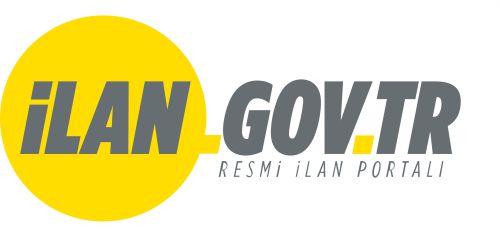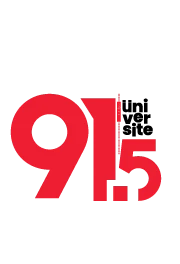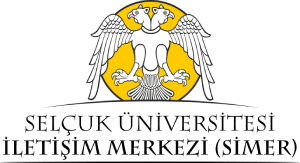Bölüm Başkanı: Prof. Dr. Ertekin M. DOKSANALTI
Farabi Koordinatör: Prof. Dr. Aytekin BÜYÜKÖZER
Erasmus Koordinatör: Prof. Dr. Asuman BALDIRAN
AKTS Koordinatör: Prof. Dr. Zeliha GİDER BÜYÜKÖZER
Mevlana Koordinatör: Dr. Öğr. Üyesi Nizam ABAY
Arkeoloji Bölümü, Klasik Arkeoloji, Prehistorya, Protohistorya ve Önasya Arkeolojisi, Ortaçağ Arkeolojisi ve Sualtı Arkeolojisi olmak üzere 5 anabilim dalında faaliyetini sürdürmektedir. Bölümde 6 Profesör, 5 Dr. Öğr. Üyesi ve 2 Araştırma Görevlisi hizmet vermektedir. Arkeoloji bölümü bünyesinde halen eğitim ve öğretime devam eden 171 Lisans, 68 Yüksek Lisans, 24 Doktora Öğrencisinden oluşan toplam kayıtlı 263 öğrenci bulunmaktadır. Selçuk Üniversitesi Arkeoloji Bölümü'nün Cumhurbaşkanlığı ve Bakanlar Kurulu Kararlı toplam 6 Antik Kent Kazısı ve 2 Yüzey Araştırması bulunmaktadır.
Antik Kent Kazısı:
1- Knidos - Burgaz-Emecik Apollon Kazı ve Araştırmaları
2- Anemurium Antik Kent Kazısı
3- İasos Antik Kent Kazısı
4- Ksanthos-Letoon Antik Kent Kazısı
5- Latmos ve Herakleia Antik Kent Kazısı
6- Gökhöyük Kazısı
Yüzey Araştırması:
1- Datça-Knidos Hinterlandı Yüzey Araştırması
2- Anemurium Hinterlandı Anamur - Bozyazı Yüzey Araştırması
Vizyon:
Arkeoloji Bölümü, eğitim programları ile geleceğin öncü çağdaş, bilim adamları, müzeci, koruma kurulları uzmanı, Kültür ve Turizm Bakanlığı uzmanları yetiştiren bir kurumdur. Mezuniyet ile birlikte arkeolog ünvanını alan Arkeoloji bölümü öğrencileri her türlü kültür varlığının korunmasında tasnif ve tespitinde görev alabilecek nitelikte uzmanlar olmaktadır.
Misyon:
Arkeoloji alanında bilimsel kazı ve araştırmaları, bilimsel çalışmaları yakından takip eden ve kazandığı deneyim ve tecrübeleri çalıştığı alana uyarlayabilen arkeoglar yetiştimek. türkiyenin kültürel zenginliklerini bilimsel metotlar çerçevesinde açığa çıkartıp elde ettiği bulguları bilim insanları ile paylaşmak ve tanıtmaktır. Açığa çıkartılan kültür varlıklarının bilimsel metotlarla korunmasını sağlamak ve ekonomiye katmaktır. Yaptığı eğitim ve öğretimin yanı sıra arkeolojik arazı çalışmaları vasıtasıyla donanımlı ve çevresine bilgi ve becerilerin aktarabilen. çalışan. araştıran. özgür, özgün ve çağdaş, kendilerini ifade edebilen, çalışan araştıran düşünen ve dürüst bireyler yetiştirmektir.
Amacı:
Tarih öncesi ve Tarihi devirlerde Anadolu ve çevre kültürlerini maddi kalıntılar ışığında arkeolojik eğitim sunmaktadır.
Programın Dili:
Türkçedir.
Programın Tanımı:
Programın çalışma alanları Klasik Arkeoloji, Prehistorya, Protohistorya ve Önasya Arkeolojisi, Ortaçağ Arkeololojisi ve Sualtı Arkeolojisidir.
Kabul ve Kayıt Koşulları:
ÖSYM'nin düzenlediği yükseköğretim geçiş sınavından yeterli puanı alarak kayıt hakkı kazanmak.
Önceki Öğrenmenin Tanınması:
Türkiye ve Yabancı ülkelerdeki yüksek öğretim kurumlarında Selçuk Üniverstesi Arkeoloji bölümüne yatay geçiş yapmak isteyen öğrenciler için, Yükseköğretim kurumlarında ön lisans ve lisans düzeyindeki programlar arasındaki geçiş, çift anadal ile yandal ile kurumlar arası kredi transferi yapılması esaslarına ilişkin yönetmelik hükümleri uygulanır.
Mezuniyet Şartları:
8 yarıyılık eğitim ve öğretim sonucunda en az toplam 240 AKTS kredilik dersleri başarıyla tamamlamış olmak.
Ölçme ve Değerlendime Esasları:
Türkiyedeki ve Yabancı ülkelerdeki Yükseköğretim kurumlarından Selçuk Ünivertesi Edebiyat fakültesi Arkeoloji Bölümlerine yatay geçiş yapmak isteyen öğrenciler için, Yüksek öğretim kurumlarında Ön Lisans ve Lisans düzeyindeki programlar arasında geçiş, çift anadal, Yandal ile kurumlar arası kredi transferi yapılması esaslarına ilişkin yönetmelik hükümleri uygulanır.
İstihdam Olanakları:
Mezun öğrenciler, yükseköğretim kurumlarında Akademisyenlik, Kültür ve Turizm Bakanlığına bağlı Müze ve Ören yerlerinde arkeolog, Özel Müzelerde Arkeolog, Kültür Varlıkları Koruma Kurularında uzman Arkeolog, KUDEB bünyesinde uzman arkeolog, Restorasyon ve Konservasyon Labaratuarlarında ve özel firmalarda danışman arkeolog, Arkeolojik Kazı ve Araştırmalarda Arkeolog olmak üzere çeşitli kamu ve özel iş kollarında istihdam edilmektedirler.
Üst Derece Programlara Geçiş:
Lisans Programını başarıyla tamamlayan öğrenciler, lisansüstü programlarda öğrenim görmek için başvurabilir.












.png)


